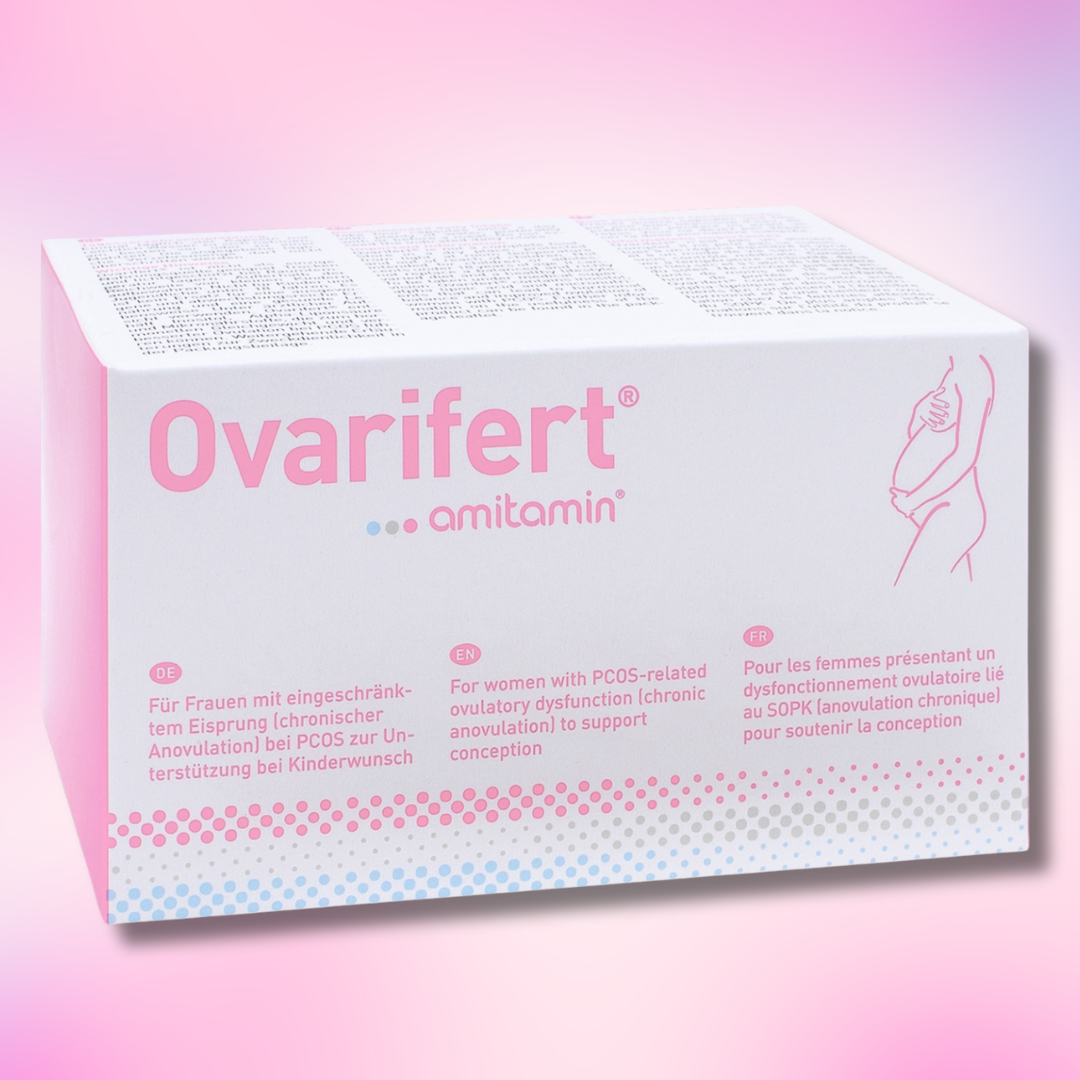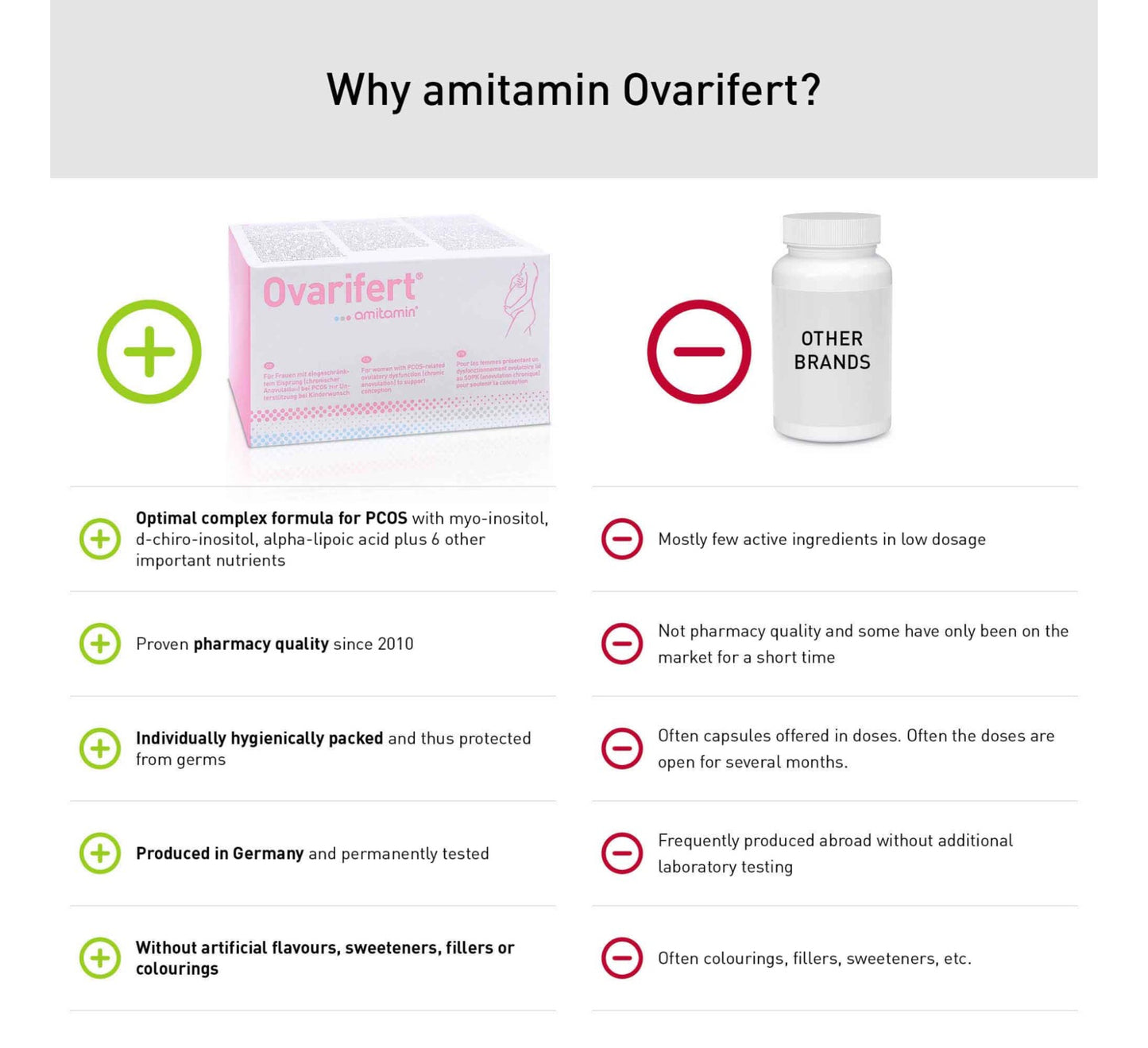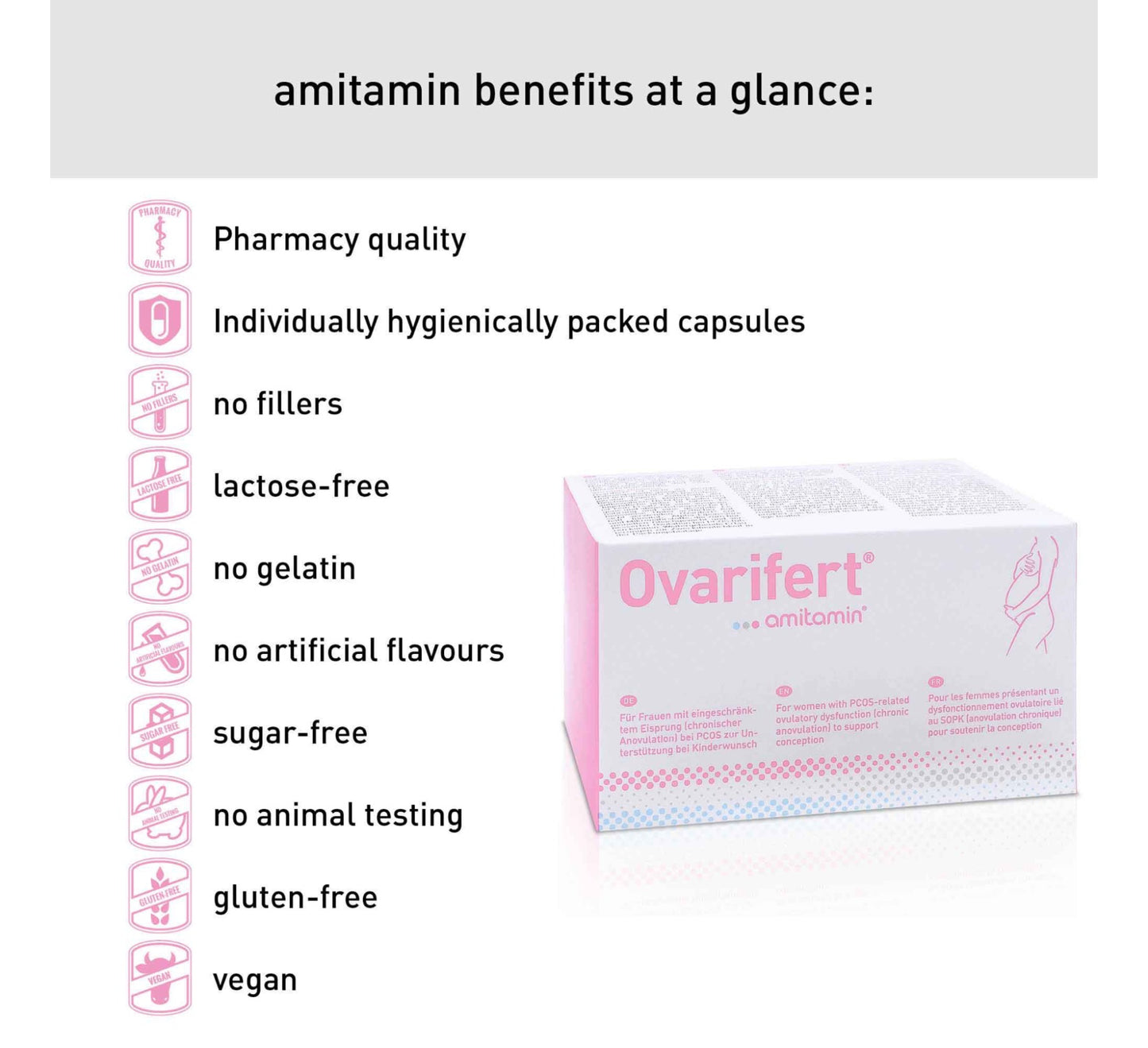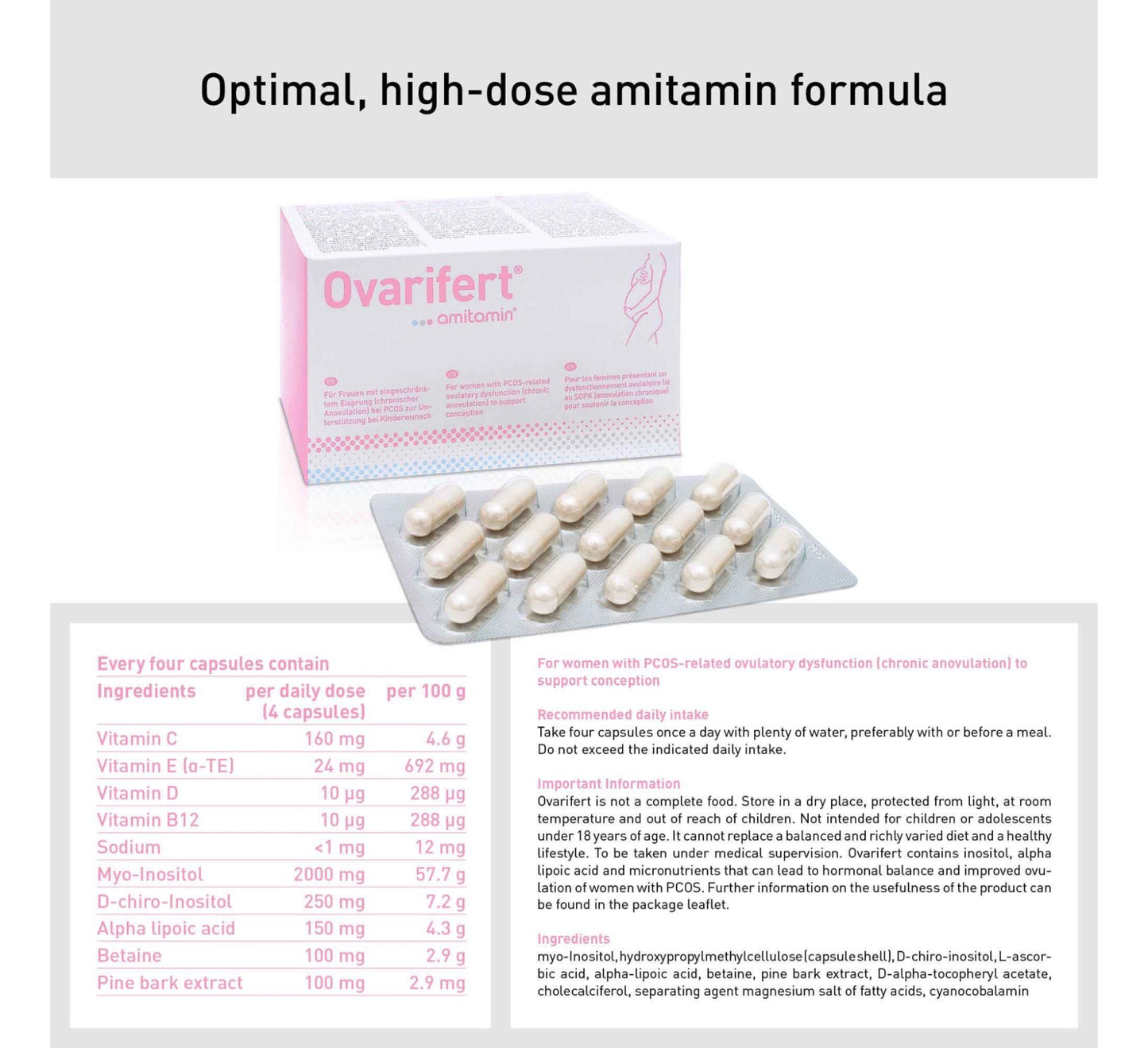July 29, 2024 | PCOS
Polycystic Ovary Syndrome (PCOS): Signs, Symptoms, Causes, and Treatments

Typically manifesting during reproductive years, Polycystic Ovary Syndrome (PCOS) is characterized by a variety of symptoms and is a leading cause of infertility. The condition derives its name from the presence of multiple cysts (small, fluid-filled sacs) on the ovaries, although not everyone with PCOS will have these cysts.
Jump to title..
Signs and Symptoms of PCOS Causes of PCOS PCOS and Endometriosis Treatments for PCOSPCOS is marked by several key features, including irregular menstrual cycles, anovulation (lack of ovulation), and elevated levels of androgens (male hormones) such as testosterone. These hormonal imbalances can disrupt the normal function of the ovaries, leading to difficulties in conceiving naturally. Additionally, women with PCOS may experience other symptoms such as acne, hirsutism (excess hair growth), and weight gain, further complicating their fertility journey.
Signs and Symptoms of PCOS
The symptoms of PCOS can vary widely from person to person, but common signs include:
-
Irregular Menstrual Cycles: This is one of the hallmark signs of PCOS. Women with PCOS often experience fewer periods (oligomenorrhea) or no periods at all (amenorrhea). In some cases, they may have heavy or prolonged menstrual bleeding.
-
Excess Androgen Levels: Androgens are male hormones that are present in both men and women but in varying levels. In PCOS, androgen levels are often elevated, leading to physical signs such as hirsutism (excessive hair growth on the face and body), acne, and male-pattern baldness.
-
Polycystic Ovaries: The presence of multiple small follicles in the ovaries, which may be detected during an ultrasound examination, is another characteristic feature. These follicles are often underdeveloped and do not regularly release eggs, which can contribute to infertility.
-
Weight Gain and Difficulty Losing Weight: Many women with PCOS struggle with weight gain, particularly around the abdomen, and find it challenging to lose weight.
-
Insulin Resistance: PCOS is often associated with insulin resistance, where the body's cells do not respond effectively to insulin. This can lead to elevated blood sugar levels and increase the risk of developing type 2 diabetes.
-
Mood Disorders: Women with PCOS are at a higher risk for mood disorders such as depression and anxiety, potentially due to hormonal imbalances and the emotional impact of dealing with the symptoms of PCOS.
Causes of PCOS
The exact cause of PCOS is not fully understood, but several factors are believed to play a role
-
Genetics: PCOS tends to run in families, suggesting a genetic component. However, the specific genes involved are still being studied so we can't fully come to conclusion on this.
-
Insulin Resistance: Many women with PCOS have insulin resistance, which can lead to increased insulin levels in the body. High insulin levels may increase androgen production, contributing to symptoms like irregular periods and hirsutism.
-
Polycystic Ovaries: The presence of multiple small follicles in the ovaries, which may be detected during an ultrasound examination, is another characteristic feature. These follicles are often underdeveloped and do not regularly release eggs, which can contribute to infertility.
-
Hormonal Imbalances: PCOS is characterized by an imbalance in reproductive hormones, including elevated levels of androgens and luteinizing hormone (LH) and low levels of follicle-stimulating hormone (FSH). These imbalances can disrupt the normal function of the ovaries.
-
Inflammation: Chronic low-grade inflammation is often present in women with PCOS, which may contribute to elevated androgen levels.
"By managing your PCOS and being proactive about your fertility, you can take control and increase your chances of achieving a healthy pregnancy."
Treatments for PCOS
While there is no cure for PCOS, several treatment options can help manage its symptoms and reduce the risk of complications
-
Lifestyle Changes: A healthy diet and regular exercise are crucial in managing PCOS, particularly for those who are overweight or have insulin resistance. These changes can help regulate menstrual cycles, improve insulin sensitivity, and reduce androgen levels.
-
Medications:
-
Hormonal Birth Control: Birth control pills, patches, or rings can help regulate menstrual cycles, reduce androgen levels, and manage symptoms like acne and hirsutism.
-
Anti-Androgens: Medications such as spironolactone can reduce androgen levels and improve symptoms like excessive hair growth and acne.
-
Metformin: Often used to treat insulin resistance, metformin can help improve insulin sensitivity, regulate menstrual cycles, and support weight loss efforts.
-
Ovarifert: Ovarifert is a dietary supplement designed specifically for women with Polycystic Ovary Syndrome (PCOS), a condition that can lead to ovulatory dysfunction and reduced fertility. Ovarifert is formulated to help manage symptoms of PCOS and support reproductive health by promoting hormonal balance, enhancing fertility, and improving the chances of conception. The supplement contains a blend of nutrients that are crucial for supporting ovarian function and overall hormonal health. You can purchase the Ovarifert from our store or directly from the Amitamin store - Amitamin Ovarifert.
-
Fertility Treatments: For women with PCOS who are trying to conceive, treatments may include medications to stimulate ovulation, such as clomiphene citrate or letrozole. In some cases, assisted reproductive technologies like in vitro fertilization (IVF) may be recommended.
-
Hair Removal Treatments: For those affected by hirsutism, options include over-the-counter hair removal products, prescription creams, or procedures like laser hair removal and electrolysis.
-
Psychological Support: Given the emotional impact of PCOS, including mood disorders and body image concerns, psychological support from counseling or support groups can be beneficial.
PCOS is a complex and often misunderstood condition that affects many aspects of a woman's health. Understanding its signs and symptoms, potential causes, and treatment options can empower women to take control of their health and seek appropriate care. With proper management, many women with PCOS can lead healthy lives and achieve their fertility goals. If you suspect you have PCOS, it's important to consult with a healthcare professional for an accurate diagnosis and personalized treatment plan.
Additional Resources for Women with PCOS:
- The National Institute of Child Health and Human Development (NICHD)
- The American Congress of Obstetricians and Gynecologists (ACOG)
- Polycystic Ovary Syndrome Association
If you need help going through any block, talking with a TTC consultant can help! Book a FREE 15 minute virtual consult today!
Essential PCOS Treatment

Hapū Helpers
Amitamin Ovarifert - PCOS support










